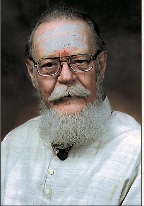By Devananda Tandavan
In emergency rooms across the US it’s fairly common for young people to be admitted in a battered state. The tip-off to the diagnosis is often multiple fractures of bones in various stages of healing. But many abused children never reach the hospital. They are often unattended and not discovered until symptoms of such ferocity appear that they are taken to a doctor. Parents feel their abuse is not very serious; however, some children have suffered lifelong consequences because of abuse. Here are some of the common and frightful complications.
Slapping the face may injure the eye from pressure applied. A common result is retinal detachment, which if unrecognized may produce permanent blindness. There may also be rupture of the eardrum, leading to permanent deafness or decreased hearing. The many small bones in the face are delicate and may be fractured, leading to problems with the sinuses, nose and teeth. Breathing may be impaired.
Rapping the skull with one’s knuckles often ruptures small vessels surrounding the brain. A hematome (blood clot) may occur and may also be associated with a blockage of cerebral vessels, leading to more or less permanent infringements of the brain. Due to external pressure on the brain (from hematomas that increase in size), the brain’s nerve pathways are hampered in their normal working, leading to bizarre, but typical, symptoms. Head injuries may also result in cervical spine trauma. Any fracture or subluxation (partial bone dislocation) at this level is serious.
If one is hit upon the chest (anterior) with great force, the heart may rupture, of course resulting in rapid death unless recognized almost at once. Lesser trauma to the chest may produce rib fractures. The fracture’s pointed edge may puncture the pleura (covering the lungs) with the result that the lung may collapse, impairing respiration. Trauma to the chest and upper lumbar area may produce a hematoma or infraction of the kidneys. A blow can injure the ureter (duct from kidney to urinary bladder) to an extent that it is blocked, leading to permanent kidney disease.
A child is usually reluctant to name the abuser. This may be partially due to a misplaced loyalty to parents or fear of further retribution. The US has social agencies to look after all childrens’ well being. In cases of habitual abuse, children may be taken from the parents. Once, social workers installed a video camera in a boy’s room to have evidence. After several weeks of surveillance, it was found the boy was abused by an older sibling out of jealousy and a need for attention. So it is not always the parents, foster parents, relative or such.
Many abused children have such mental trauma that they proceed into a neurosis or even a psychosis. They quickly develop a severe inferiority complex and “separation” from their true self. Even though they may be brought through this phase with counseling and true loving care, there is always some residue making them lead a sociopath’s life. This is an extreme price to pay for doing only “what all children do.”
Failure to thrive: This term describes the condition of a child who is underdeveloped physically, mentally or emotionally. “Organic” failure to thrive is a result of lack of maternal affection, malnutrition, disease or injury and is seen mostly in very young children. “Nonorganic” failure to thrive is a more complex disorder found in older children. Studies have shown that when a home becomes abusive or dysfunctional, the child’s development will slow down. During the years and months leading up to a messy divorce, for example, the child’s height and weight may cease to increase at a normal rate. Daily beating and berating can similarly result in failure to thrive. The compromised future development may produce subnormal mentalities and mutilated bodies.
In the extreme situation, the child will be below average height for his age and birth weight; thin; even emaciated; potbelly; suffering from headaches, diarrhea; tension and misery; with an apathetic and withdrawn demeanor, prone to short temper tantrums, insensitivity to pain, insomnia and disrupted sleep, so that they roam the house at night, probably searching for food; eating and drinking inappropriate substances, such as things from the garbage can. When a physician sees several of these qualities in a child, he should investigate the family situation and, if necessary, recommend counselling.
If the infant and younger child does not receive enough personal attention, cuddling, holding, kissing and general fulfillment of his needs, he is likely to have psychological changes that will also induce changes in the gastrointestinal system, so that a state of malnutrition begins. If a factor of physical abuse is added to this neglect, there may be marked psychological changes such as depression, lack of interest in games, inability to digest food, antagonistic behavior and even changes in the mentality, as evidenced by changes in the intelligence quotient. The personality changes seem to bring about more parental abuse as the child becomes older.
A family whose children fail to thrive lacks communication and interaction between its members, parental bonding, nurturing and attachment. The child responds in like kind, frequently with feeding and behavioral problems. Even in otherwise well-to-do families, failure to thrive may be seen in greater or lesser degree as a result of abusive corporal punishment and the resulting disruption to the child’s being.
You may say “my father beat me as a child and I had no serious consequences.” This may be true, but doesn’t guarantee there will be no lasting effects on the body, and–more importantly–the mind. We are thankful that not all parents are abusers.
Dr. Tandavan, 78, retired nuclear physician and hospital staff president, lives in Chicago, where he specializes in alternative healing arts. If you are interested in further articles on health and healing visit his home page. [http://www.himalayanacademy.com/books/drt/]
